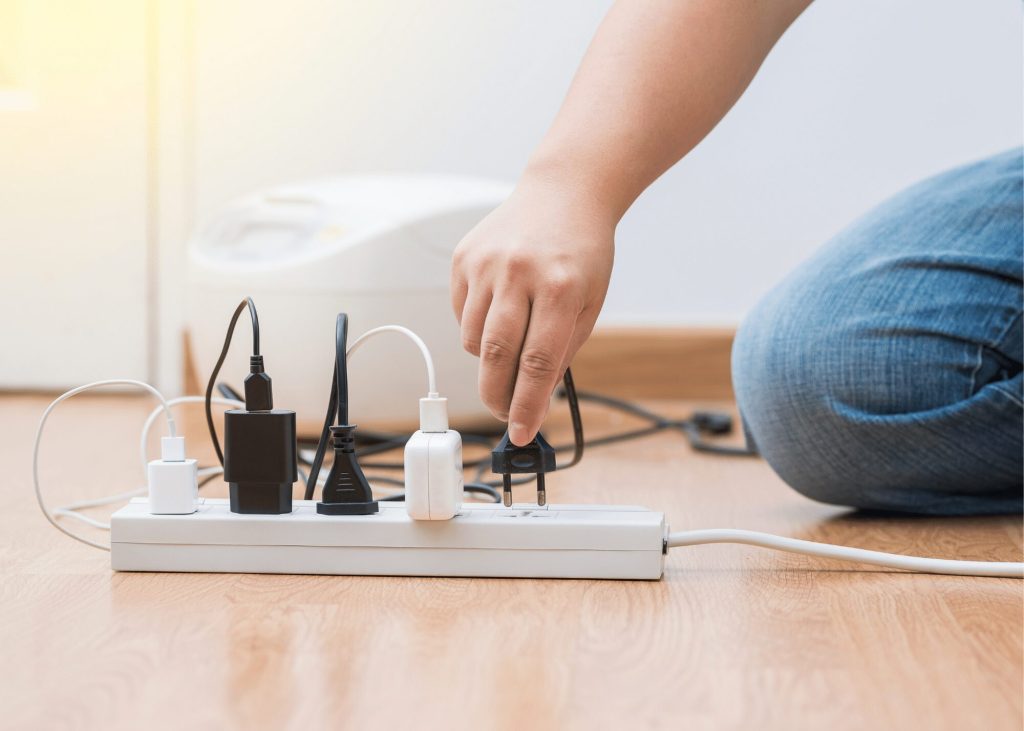Ever experienced flickering lights or had your electronics mysteriously stopped working?
These could be signs of an electrical surge. Power surges might seem harmless, but over time, they can cause serious damage to your home’s electrical system and appliances.
Let’s know more about how surges happen and, more importantly, how to prevent them.
What Causes Electrical Surges?
A power surge is a sudden spike in electrical voltage, exceeding the typical 120 volts most homes use. These surges can be triggered by –
- Lightning Strikes – Rare but powerful, a lightning strike can send millions of volts through your home’s electrical system.
- Fallen Power Lines – Bad weather or accidents can knock down power lines, disrupting voltage levels.
- Old or Damaged Wiring – Frayed or outdated wiring can cause voltage fluctuations and pose a fire risk.
- High-Powered Appliances – Devices like refrigerators or air conditioners turning on and off can create small internal surges.
Tips to Prevent Electrical Surges at Home
1. Invest in Surge Protectors
Plugging your electronics into surge protector power strips is a simple and cost-effective way to shield them from everyday surges. While they won’t guard against lightning strikes, they can prevent damage caused by low-level fluctuations.
2. Install Whole-Home Surge Protection
For comprehensive protection, consider installing a whole-home surge protector. These systems connect directly to your electrical panel, protecting all appliances and electronics. They can handle larger external surges, like those caused by lightning or power grid issues.
3. Unplug During Storms
If severe weather is in the forecast, unplug your most valuable electronics, like TVs, computers, and gaming consoles. While this might feel inconvenient, it’s the best way to protect against lightning-induced surges.
4. Schedule an Electrical Inspection
Older homes are more likely to have outdated or damaged wiring. Have a licensed electrician inspect your home’s electrical system to identify any risks. They will check for frayed wires, worn insulation, or circuits that aren’t up to modern standards.
5. Avoid Overloading Outlets
Plugging too many devices into a single outlet can cause overheating and surges. Spread appliances across multiple circuits, and avoid overloading one outlet with high-powered devices.
Power surges can lead to expensive repairs or replacements for appliances and electronics. They can even pose safety hazards, like fires caused by damaged wiring. Taking preventative measures now can save you money and stress down the road.
Protect your home from electrical surges with the help of Seatown Electric Plumbing Heating and Air.
Contact us today to learn more about our whole-home surge protection services and electrical inspection services!

